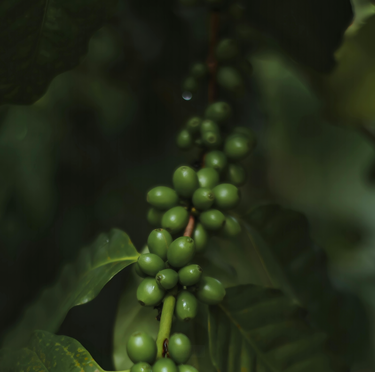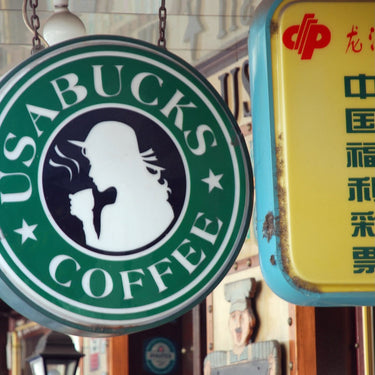TRADITIONAL
Nº 212 Guatemala Cooperativa Acatenango SHB
Country: Guatemala
Process: Washed
Grown / Region: Acatenango
Altitude: 1220 - 1830 masl
Varietals: Bourbon, Typica, Caturra, Catuai
Producers: Members of Cooperativa Acatenengo
Tasting Notes: Dark Chocolate, Honeycomb & Pear
Roast Level: Medium 3/5

FARM NOTES:
The Acatenango cooperative is located in Acatenango, Chimaltenango on the slopes of the Acatenango volcano which is the third highest in the Central American range and gives the cooperative their name. It was established in March 1967, by 24 members who wanted to get a better price for their coffee. Two years later, these coffee pioneers also helped establish the exporter Fedecocagua who we now source a large amount of our favourite Guatemalan coffees from, and by 2018 the coop had grown to include 351 members.
Volcan de Acatenango is located close to Volcan de Fuego, with Volcan de Agua being close to Palin. Volcanic soil can bring a lot of benefits in terms of nutrients to the plants, but as we saw in June 2018, there is always a threat of disruption and loss of life that eruptions can bring.
After picking, coffee is washed and pulped before drying for one day on the patios and then being moved to guardiolas for controlled drying. This typically comprises of 40 hours at 45 degrees before being lowered to 30 degrees and finally 15 degrees until optimum moisture content is reached. The lowering of temperature ensures evenness of drying meaning the green life of the coffee is the best it can be. It is then shipped in parchement to the Fedecocagua facility in Palin, Escuintla for final grading and milling ready for export.
We have sourced Novembers Traditional coffee; Acatenango from our friends over at Wakefield. This coffee grows 1220-1830 masl; close to Volcan de Fuego in volcanic soil which allows the coffee plants to thrive, benefitting from countless nutrients. We chose Acatenango particularly to display a quality example of a washed Guatemalan coffee. Guatemalan coffees often present a very balanced cup with excellent sweetness, acidity, and body, and this one is no exception!. We went for a faster roast with a higher end temp to create a darker roast with lots of dark chocolate, Honeycomb sweetness and a pear like acidity.
DISCOVERY
Nº 213 Brazil Mio C05 Peaberry Natural
Country: Brazil
Process: Natural
Grown / Region: São Sebastião do Paraíso
Altitude: 900 - 1100m
Varietals: Yellow Catucaí, Mundo Novo & Yellow Bourbon
Producers: Renata & Carlos Pellicer
Tasting Notes: Praline, Baklava & Apricot
Roast Level: Medium 3/5

FARM NOTES:
Mió is a coffee farm in Monte Santo de Minas, Brazil, that exports, imports, stores, and sells coffee. Here, the Pellicer family are committed to exceptional levels of traceability. A third of their land is solely for coffee with the other two thirds being equally divided between coffee and native forest reserve. With plenty of spring water in the area one of there goals is to maintain water flow as well as improve water quality. Dedicating the same amount of land to the coffee as to the native forest helps preserve the natural characteristics of the area. The farm is located between Southern Minas Gerais and the High Mogiana region. Two distinct terrains, one bringing a citric acidity, the other a full body and sweetness to Mió’s coffee. Mio are great to work with as like us there pride themselves on quality and traceability.
This coffee was harvested between May and September, in which once it had been picked it would go through a washing phase. This is used to remove any unwanted under or over ripe cherries. Then it is on to the drying of the parchment, where it would have spent around three days on the drying patios and a further three days in static dryers. Once dried to the appropriate moisture content it would then rest in wood silos for up to 25 days until it is moved to the dry mill for sorting and grading. The natural process is considered the most eco-friendly coffee process, using little to no water, used for most of Mió’s microlots to increase the fruity and citrus aromas while retaining the sweetness in the cup.
This Novembers Discovery a Peaberry Natural comes to us from our lovely friends over at Mio. The Mio estate is situated in the region on Monte Santo de Minas around 300km north of Sao Paulo in SW Brazil. Here, the Pellicer family are committed to exceptional levels of quality and traceability.
The natural process is considered the most eco-friendly coffee process, using little to no water, used for most of Mió’s microlots to increase the fruity and citrus aromas while retaining the sweetness in the cup.. Peaberry get there name from being very small compared to other styles of arabica.
This Natural was harvested and then washed in large tanks to remove underripe and overripe cherries. Onced washed it then gets passed through the depulper to remove the mucilage and leave just the parchment, which is then ready to be dried to the correct moisture content.





